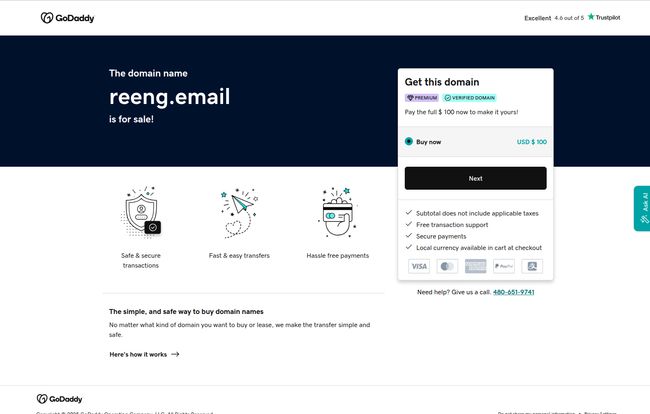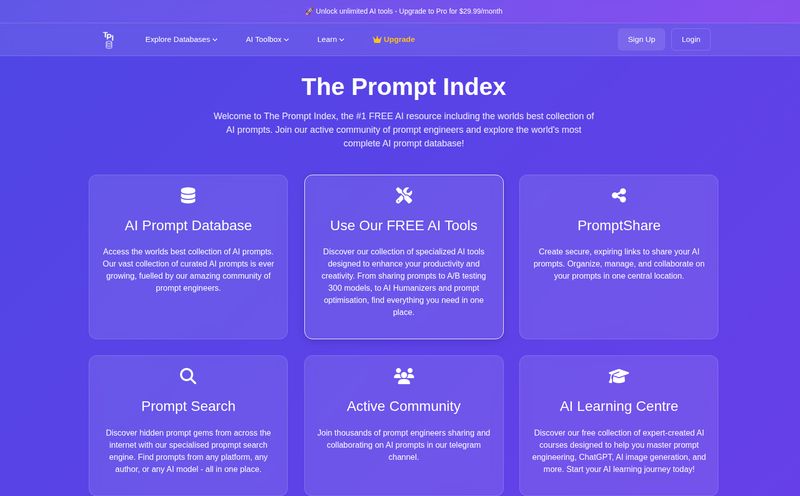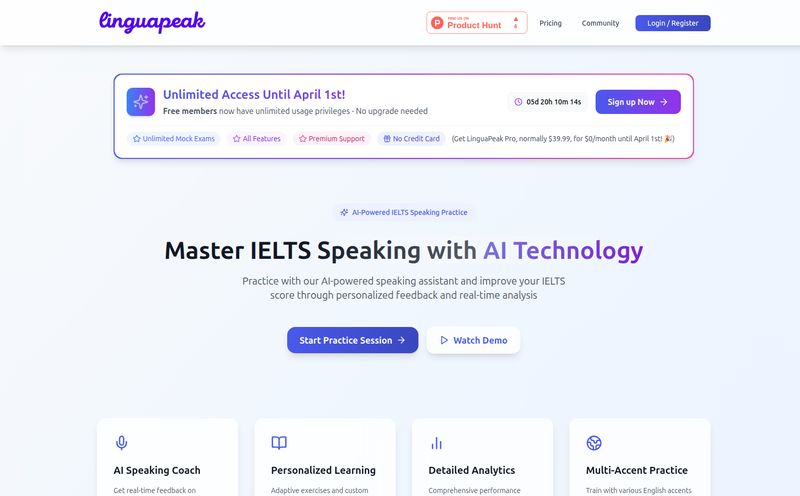As an SEO guy, I spend an ungodly amount of time in my inbox. Crafting outreach emails, responding to clients, negotiating with vendors… it's a world of its own. And getting the tone right, especially for non-native English speakers, can be the difference between landing a deal and getting ghosted. So, when I hear about a new AI tool designed to help people practice their English writing through email simulations, my ears perk up. The other day, a tool called Re:Eng crossed my desk.
The concept was brilliant. Simple. An AI-powered sparring partner to help you write better emails. It promised personalized feedback, real-world scenarios, and vocabulary suggestions. This wasn't just another grammar checker; it was pitched as a full-blown communication gym. I was genuinely excited. But as I started digging, the story took a very, very weird turn.
What Was Re:Eng Supposed to Be?
On paper, Re:Eng sounded like the exact tool so many people need. We’ve all been there, right? Staring at a blank “Compose” window, agonizing over whether to use “Hi,” “Hello,” or “Dear Sir or Madam” (please, never use that last one). Re:Eng was designed to be a flight simulator for your inbox. It would throw you into different situations—writing to your boss, chatting with a new pen friend, or even navigating a tricky customer service issue. The AI would then act as your correspondent and your coach, giving you feedback on your tone, clarity, and word choice.

Visit Re:Eng
The core features seemed spot on:
- AI-Driven Email Practice: Instead of writing into a void, you'd get a reply, creating a realistic back-and-forth.
- Real-Life Scenarios: This is the good stuff. Practicing a formal project update is completely different from writing a casual check-in.
- Vocabulary Enhancement: The tool was meant to suggest stronger, more appropriate words, helping you expand your professional lexicon beyond just “good” and “bad.”
- Personalized Feedback: It wouldn't just flag a typo; it would (in theory) tell you why a certain phrasing might sound awkward or unprofessional.
The Real-World Need for an Email Simulator
Let's be real for a second. The anxiety of sending an important email in a language that isn't your first is immense. I've worked with incredibly talented marketers and developers from all over the world, and many have confided that their biggest insecurity is their professional writing. They worry about sounding too blunt, too passive, or just… wrong. It's a huge barrier to confidence.
A tool like Re:Eng promises a safe space to fail. A place to test out phrases and get instant, non-judgmental feedback before you hit “send” on that email to your CEO. That's not just a nice-to-have feature; it's a powerful career-building asset. Getting communication right opens doors, builds trust, and helps you get your brilliant ideas heard. The potential impact is huge, which is why I was so keen to see it in action.
The Potential Strengths (On Paper, At Least)
The theoretical pros of Re:Eng were pretty compelling. The ability to practice writing in realistic contexts is something I've always felt was missing from language learning apps. You can memorize vocabulary all day, but applying it with the right nuance is a different skill entirely. Giving users access to this kind of training from any device, at any time, is a game-changer for busy professionals. It's practical, its personal, and it directly addresses a common pain point. The idea of getting feedback that’s tailored specifically to your weak spots is the holy grail of learning. No more generic lessons; just focused training where you need it most.
The Obvious Hurdles and Red Flags
Of course, there are always challenges. With any AI coach, its effectiveness is only as good as the AI's programming. Could it truly understand the subtle cultural nuances that color professional communication? I have my doubts. An AI might not catch the passive-aggression hidden in “As per my last email…” The provided info also mentioned connecting with real people, but was hazy on the details of how that matching would work, which felt a bit like a loose thread.
And this is where my research hit a brick wall. A very large, very obvious brick wall with a price tag on it.
The Plot Twist: A For Sale Sign on the Digital Door
Naturally, after reading about its features, I went to check out the platform. I typed reeng.email into my browser, expecting a slick landing page, a sign-up form, maybe a demo video. Instead, I landed on GoDaddy.
The domain name reeng.email is for sale!
I had to read it twice. There it was, in black and white. The digital home of this promising AI writing coach was up for grabs. And the price? A whopping $100.
My jaw kinda dropped. For less than the cost of a decent pair of noise-canceling headphones, you could own the domain of what sounded like a killer SaaS product. What in the digital ghost town is going on here? This isn't a million-dollar premium domain; it's a hundred-dollar sign that something went wrong. Did the founders run out of runway? Did they have a great idea and no resources to build it? Was it a side project that got abandoned? It's a classic startup story, but one you rarely see play out so bluntly on a domain registrar's website.
So, What Can You Use Instead of a Digital Ghost?
Okay, so Re:Eng is likely defunct or was never fully born in the first place. A shame, really. But the problem it aimed to solve is still very real. So where should you turn? Fortunately, there are other fish in the sea.
- Grammarly Business: It’s more than just a spellchecker now. Its tone detector is surprisingly sophisticated and can give you real-time feedback on how your writing might be perceived (confident, friendly, formal, etc.).
- QuillBot: While primarily a paraphrasing tool, its grammar checking and “Co-Writer” features can help you rephrase sentences and find better ways to express your ideas. It's great for getting out of a writing rut.
- Prompting ChatGPT or Claude: This is the DIY method. You can literally ask an advanced LLM, “Act as my manager. I need to write an email asking for an extension on the Q3 report. Here is my draft. Please critique it and help me improve the tone.” The results can be incredibly insightful, though it lacks the slick interface of a dedicated tool.
The dream of a dedicated email simulator like Re:Eng isn't quite a reality in the mainstream yet, but you can definitely piece together a similar experience with the tools we have today.
Frequently Asked Questions about Re:Eng
What was Re:Eng?
Re:Eng was a concept for an AI-powered platform designed to help users improve their English email writing skills through realistic simulations, personalized feedback, and vocabulary suggestions.
Why can't I access the Re:Eng website?
The website is inaccessible because the domain name, reeng.email, is currently listed for sale on GoDaddy, indicating the project is likely inactive or was never launched.
How much did Re:Eng cost?
There is no available pricing information for Re:Eng. The project appears to have been abandoned before a pricing model was ever made public.
What are some good alternatives to Re:Eng for email practice?
Excellent alternatives include Grammarly Business for its tone detector, QuillBot for paraphrasing and improving sentence structure, and using advanced AI chatbots like ChatGPT with specific prompts to critique your writing.
Is AI good for learning English writing skills?
Yes, AI can be a powerful tool. It provides instant feedback on grammar, spelling, and style. While it may not perfectly capture human nuance, it's an excellent assistant for identifying errors and improving clarity in your writing.
What happened to the reeng.email domain?
As of late 2023, the domain is publicly listed for sale for $100. This suggests the original owners have let it expire or are actively trying to sell it, effectively ending the Re:Eng project as it was.
A Toast to a Good Idea
The story of Re:Eng is a bit of a bummer, but it's also a fascinating snapshot of the tech world. It's a reminder that a great idea is only the first step in a very, very long process. For every AI tool that makes it big, there are probably a thousand digital ghosts like Re:Eng whose domains are lingering on registrars for a hundred bucks.
Still, the idea behind Re:Eng is solid gold. The need for a safe, practical way to hone our professional communication skills is only growing. While Re:Eng might not be the tool to do it, its ghost serves as a great reminder of what we should be looking for in the next generation of language learning tech. Here's hoping someone else picks up the torch—or maybe just buys the domain.
Reference and Sources
Re:Eng Domain Listing: GoDaddy page for reeng.email (As observed during research).
Alternative Tools:
Further Reading: Vi-An Nguyen, "Can AI really help you learn a new language? We tried it," Popular Science. An interesting look at the broader role of AI in language acquisition.



